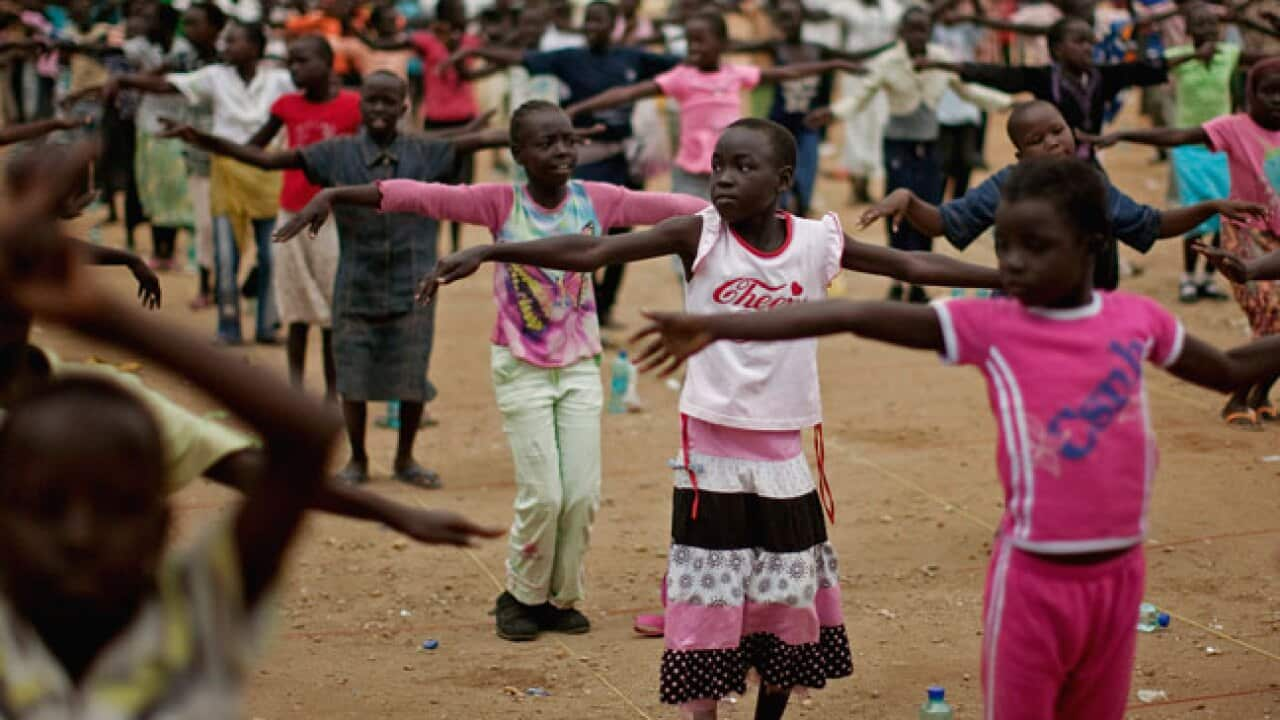South Sudan becomes independent this week after five decades of conflict with the north, and the US is throwing considerable diplomatic and economic support behind the launch of the new state.
On Saturday July 9, millions of southern Sudanese, 30 African leaders and top-ranking officials from around the world will mark the birth of the world's newest country and the continent's 54th sovereign state.
"It is something the people have been waiting for for many years. It is a moment we will celebrate with joy," Mangar Gordon Marial, a spokesman for the president's office, told AFP.
"People are very excited about this day, because it is a day of freedom."
USAID TO MAINTAIN FUNDING LEVELS
Despite tight budget times, officials said, the United States Agency for International Development (USAID) expects to maintain its level of development funding at between $250 million and $300 million a year.
"The commitment of the US government for development supporting this new country is really going to continue the way it was," a US government official told AFP on condition of anonymity, contradicting fears that the grossly underdeveloped region will slip off the international agenda after independence.
After the 2005 Comprehensive Peace Agreement (CPA) ended a 22-year-old civil war, Washington set up programs to promote health and education, boost farming, and build roads as well as electrical and water systems.
It also launched other programs to train officials in a southern Sudan that has been autonomous from the north-based government for six years and overwhelmingly chose full independence in a January referendum.
USAID has also funded conflict-resolution programs such as those aimed at encouraging young southerners to find jobs rather than opt for cattle-raiding.
WARS LEFT REGION IN RUINS
Between 1955, the year before Sudan gained independence from its colonial rulers Britain and Egypt, and 2005, southern rebels fought two wars with successive Khartoum governments for greater autonomy and recognition, leaving the region in ruins, millions of people dead and a legacy of mutual mistrust.
The peace accord that was signed by late rebel leader John Garang and Sudan's Vice President Ali Osman Taha six years ago, in the Kenyan town of Naivasha, heralded a new chapter in the country's history and paved the way for January's referendum on independence for the south.
Southerners opted almost unanimously for secession in the vote, which defied expectations by taking place on time largely without incident, and whose result the Khartoum government pledged to respect.
FIRST PRESIDENT TO SIGN CONSTITUTION
The official events of Saturday's celebrations at Garang's mausoleum in the southern capital Juba will include military parades, raising the Republic of South Sudan's flag and the new country's first president, Salva Kiir, signing the transitional constitution.
"It will be a historic occasion for all our people who have travelled a long and difficult road to the birth of this nation," said the south's information minister, Barnaba Marial Benjamin.
"We all know we face many challenges ahead -- we will face them as united, peaceful and independent and build a stable and prosperous country."
Those challenges are starkly illustrated by armed clashes within south Sudan's borders which have killed more than 1,800 people this year, shocking social indicators for one of the world's least developed regions and angry disagreements with Khartoum over post-separation arrangements.
TENSIONS ESCALATING
Sources close to north-south negotiations in Addis Ababa say that a deal on restructuring Sudan's key oil sector now looks very unlikely before July 9, with the still undetermined future status of Abyei one of the main factors obstructing progress.
Tensions between the former civil war foes have escalated sharply since northern troops occupied the bitterly disputed border region on May 21, prompting 117,000 ethnically southern residents to flee south.
Just two weeks later, heavy fighting erupted in the ethnically divided northern state of South Kordofan, between northern troops and militia aligned to the SPLA, military wing of the south's ruling party the Sudan People's Liberation Movement.
The US envoy to Sudan, Princeton Lyman, warned shortly afterwards that the two parties had returned "to the brink of full-scale conflict."
An agreement to demilitarise Abyei and deploy 4,200 Ethiopian peacekeepers was reached on June 20, although any resolution on the region's future status remains elusive.
Hopes for a ceasefire in South Kordofan, a former civil war battleground which has a large number of SPLM supporters among its indigenous Nuba peoples, took a blow on Friday when President Omar al-Bashir ordered the army to "cleanse" the state of rebels.
After much speculation about whether he would attend the celebrations, Bashir confirmed in an interview with pro-government Al-Rai al-Aam newspaper on Sunday that he will travel to Juba, where he is listed as one of the main speakers.
Southern officials say he will be the chief guest of honour.
Certainly there are Sudanese who will not be celebrating the independence of the south, among them Islamic hardliners in Khartoum and even some southerners living in the north who regret that Garang's vision of a new, federal and democratic Sudan was never realised.
But few people doubt that what was once only a distant dream for so many people will now become permanent reality in just five days' time.

